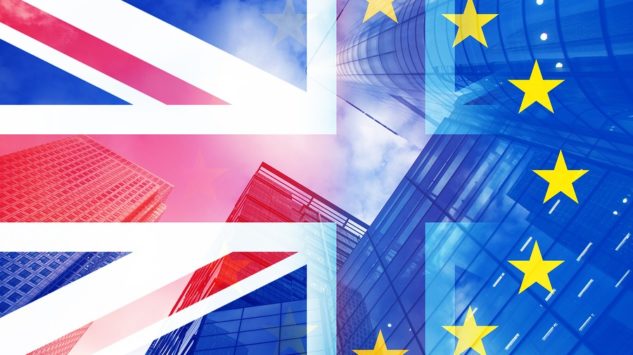Issue Briefs

UK Prime Minister determined to get Brexit deal
Graham Bardgett
January 17, 2019
Despite a crushing defeat on her Brexit Treaty Deal UK Prime Minister Theresa May has been meeting party leaders to find a compromise.
And after clinging onto power by a majority of only 19 in the 306 to 325 No Confidence Vote Labour’s Jeremy Corbyn called the talks a “stunt” and said he will not take part unless a “no deal” Brexit is ruled out.
Humiliating defeat
In the humiliating Vote on EU Withdrawal the Government lost by 202 to 432 which immediately triggered the Vote of No Confidence which took place 24 hours later. She won the second vote that by the narrowest of margins which however allowed her to embark on a strategy of talks as the clock continued to countdown to the UK’s Exit from the EU on 29 March.
Amid demands to invoke Article 50 cancellation –or at the very least a delay– more drama continued to unfold. The shifting sands of Westminster politics left everyone with questions. And the old saying of politics being the art of the possible took on even greater meaning, some even asking why was Theresa May still Prime Minister.
New plan
Now the PM will publish a new plan within days with a full debate and key vote scheduled for Tuesday, 29 January. Speaking outside Downing Street after talks with the Lib Dems, Scottish Nationalists, and Plaid Cymru of Wales, Mrs May called on MPs to “put self-interest aside”. “It will not be an easy task, but MPs know they have a duty to act in the national interest, reach a consensus and get this done,” she said.
The prime minister is holding meetings with various party leaders as well as Tory Brexiteers and the DUP – both of whom rejected her withdrawal deal.
Extensive consultations
Environment Secretary Michael Gove, Cabinet Office Minister David Lidington and Brexit Secretary Steve Barclay have been holding talks with senior opposition politicians.
So far, Mrs May has met with:
- Ian Blackford, the SNP’s Westminster leader
- Liz Saville Roberts, Plaid Cymru’s Westminster leader
- Sir Vince Cable, Lib Dem leader
- Caroline Lucas, the Green Party’s only MP
- Tory Brexiteer Nigel Evans
- Nigel Dodds, DUP Westminster leader
- Arlene Foster, DUP leader
And ministers and senior Tories have been arriving at Downing Street to continue talks with parliamentarians and MPs from other parties, including:
- Tory colleagues Owen Paterson, Iain Duncan Smith, David Davis, Mark Francois and Steve Baker
- Sir Graham Brady, chairman of the 1922 Committee of Tory backbenchers
- Cheryl Gillan, MP for Chesham and Amersham and a vice-chair of the 1922 Committee
- Hilary Benn, Labour MP and chairman of the Brexit select committee
- Adam Price, Plaid Cymru leader
- Yvette Cooper, Labour MP
- Nicky Morgan, Conservative MP
- Shailesh Vara, Conservative MP
- Tom Brake, Lib Dem MP and the party’s Brexit spokesman
- Jo Swinson, MP and deputy Lib Dem leader
Labor party response
In a speech in Hastings Mr Corbyn, the leader of the opposition, said he was “quite happy” to talk with Mrs May, but she had to rule out a no-deal Brexit.
The Labour leader urged Mrs May to “ditch the red lines” and “get serious about proposals for the future”.
He said: “With no-deal on the table, the prime minister will enter into phony talks just to run down the clock and try to blackmail MPs to vote through her botched deal on a second attempt by threatening the country with the chaos that no-deal would bring.”
The SNP’s Westminster leader, Ian Blackford, said that the extension of Article 50 – the two year mechanism that means the UK leaves the EU on 29 March – the ruling out of a no-deal Brexit, and the option of a second EU referendum would have to form the basis of future discussions.
Smaller parties perspectives taken into account
Party leader and Scotland’s First Minister Nicola Sturgeon tweeted that the talks were just “time wasting” if the prime minister was not prepared to consider another referendum, rule out a no-deal Brexit or to extend Article 50.
Plaid Cymru’s Westminster leader, Liz Saville Roberts, said they were “committed to finding a real solution” but “that means taking a no deal Brexit off the table and a People’s Vote on our European future”.
Liberal Democrat leader Sir Vince Cable said he was encouraged by Mrs May’s “willingness to talk about these issues in detail”. The preferred choice of the party is another referendum.
Following her meeting on Thursday, Green MP Caroline Lucas said the PM refused to rule out a no-deal Brexit.
“I repeatedly urged her again and again to take ‘no deal’ off the table because I think it completely skews the talks because you know that cliff edge is there,” she said. Mrs May was also resisting the option of extending Article 50, Ms Lucas said.
DUP leader Arlene Foster said the prime minister was in “listening mode” and there was optimism that a Brexit deal could still be reached. She said she made a “clear ask” in relation to the Irish backstop, urging Mrs May to address it “in a satisfactory way”.
 |
Graham Bardgett is a Global Policy Institute Fellow. He has reported for the Los Angeles Post Examiner and Baltimore Post Examiner and is a former BBC Radio News sub-editor in London and Veteran reporter of the Northern Ireland Troubles and Peace Process. He had five years on the news desk of BBC Northern Ireland, nine years as a security reporter on the Belfast Telegraph, four years as Ireland staff reporter for the Daily Mail, and was a correspondent for the Financial Times, Daily Mirror, Sunday Express, and Irish Daily Mail. During his career he has also reported from Berlin, Luxembourg, and Rome, and carried out public affairs critical incident consultancy work in Kazakhstan and in London. He had four years with PwC international accountants and consultants; and was previously a UK Government Higher Executive Press Officer. |
The views and opinions expressed in this issue brief are those of the author.